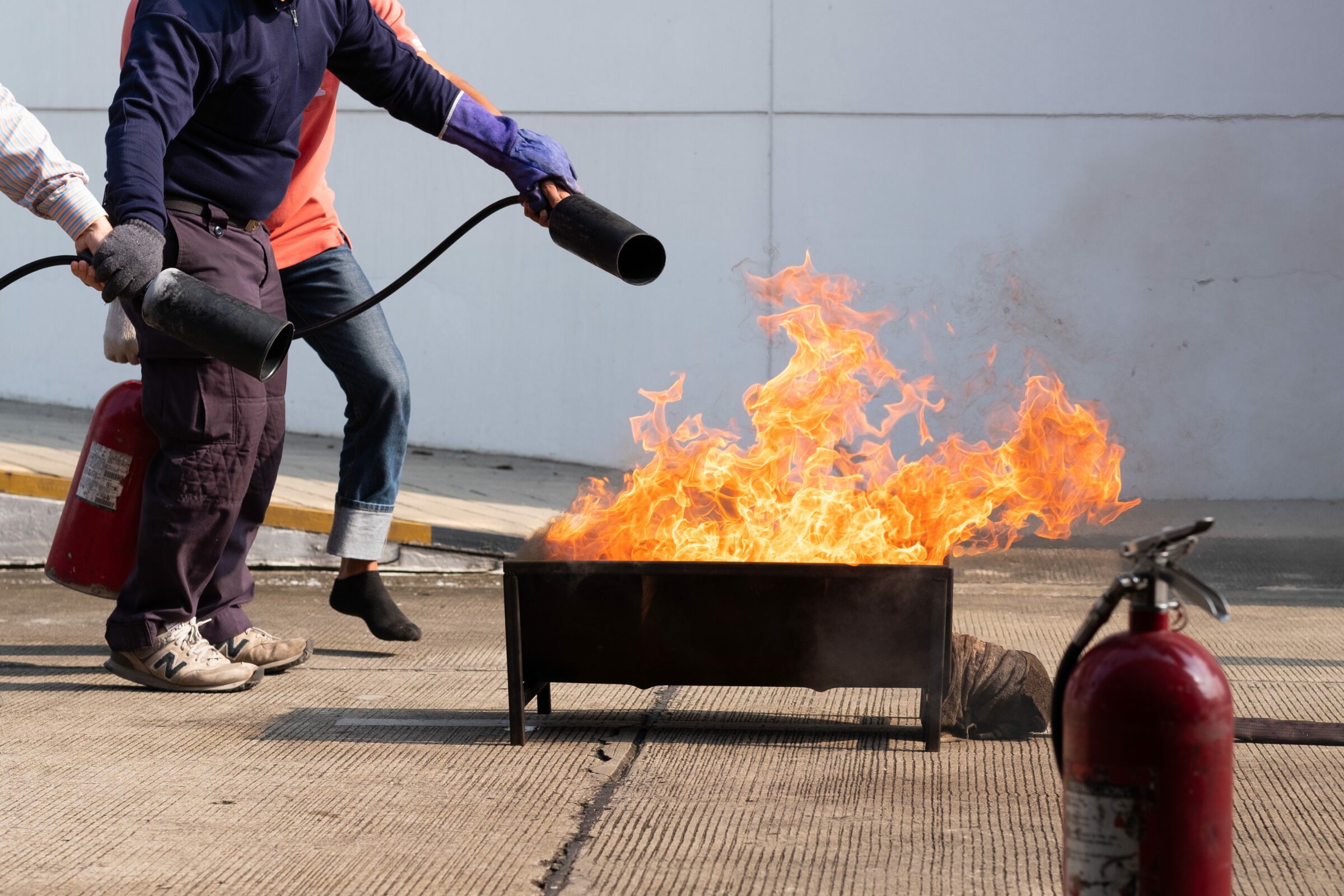Enhancing Fire Safety: The Impact of Fire Warden and Fire Marshal Training on Workplace Preparedness in Ireland
Fire safety is a crucial aspect of any workplace, impacting not only the well-being of employees but also the overall operational integrity of a business. In Ireland, Fire Warden and Fire Marshal training plays a pivotal role in preventing workplace fires and enhancing emergency preparedness. This blog explores the significance of these training programs and how they contribute to fire risk management, emergency procedures, and compliance with Irish fire safety regulations.
1. Understanding the Role of Trained Personnel
A Fire Warden, often referred to as a Fire Marshal, is a vital figure in workplace fire safety management. Their responsibilities span emergency preparedness, staff training, and ensuring compliance with safety regulations. Here’s a look at their key functions:
- Fire Risk Identification: Trained personnel are equipped to identify potential fire hazards in the workplace. They conduct regular fire risk assessments and implement measures to mitigate identified risks.
- Emergency Fire Procedures: Fire Wardens oversee the creation and implementation of effective emergency fire procedures. They ensure the entire staff is familiar with escape routes and assembly points.
- Training and Drills: Regular fire safety training and drills enhance employee readiness. Fire Wardens lead these initiatives, instilling a culture of safety within the organization.
- Compliance with Fire Safety Regulations: In Ireland, several regulations govern fire safety in workplaces. Fire Wardens ensure their organization adheres to these legal requirements, reducing liability and enhancing safety.
2. Fire Risk Management: A Proactive Approach
One of the primary functions of Fire Wardens is conducting fire risk management training. This includes:
- Identifying Potential Risks: Regular assessments help in spotting risk factors such as faulty electrical equipment, improper storage of flammable materials, and inadequate fire exits.
- Risk Mitigation Strategies: Implementing solutions like improved housekeeping, regular maintenance checks, and updated fire safety equipment can significantly reduce risk.
- Creating a Safety Culture: Training fosters awareness among employees regarding their own behaviors contributing to fire risk, promoting a collective approach to safety.
3. Emergency Procedures and Evacuation Plans
When a fire emergency arises, timely action is crucial. Fire Wardens are trained to establish and manage emergency procedures, which include:
- Evacuation Planning: Fire Wardens develop clear evacuation plans that are understood by all employees. They outline escape routes, assembly points, and roles during an emergency.
- Conducting Safety Drills: Regular fire drills, facilitated by Fire Wardens, ensure that staff are well-acquainted with evacuation procedures, reducing panic during real emergencies.
- Communication with Emergency Services: Fire Marshals act as liaisons with firefighting services, providing essential information about the building layout and potential hazards.
4. Legal Compliance: Fire Safety Training Requirements
In Ireland, compliance with fire safety regulations is non-negotiable. Employers are obligated to train specific personnel, generally Fire Wardens, concerning fire safety matters. Here’s how certification impacts the workplace:
- Meeting Health and Safety Standards: Training enables businesses to comply with legal requirements related to fire safety, avoiding potential fines and legal issues.
- Reducing Insurance Premiums: Demonstrating a commitment to fire safety through training can lead to lower insurance premiums as it decreases the perceived risk to insurers.
- Enhancing Corporate Reputation: Companies prioritizing safety through proper training programs enhance their reputation amongst clients and employees, fostering trust and loyalty.
5. Investing in Fire Safety Training
Obtaining a Fire Warden Certificate or Fire Marshal Certification not only equips personnel with essential skills but also directly contributes to a safer working environment. Here’s why investing in training makes sense:
- Preparedness: Employees are better prepared for emergencies, ensuring personal safety and quicker responses to incidents.
- Proactive Risk Management: Trained staff can proactively identify and mitigate fire risks before they escalate into emergencies.
- Boosted Morale: A safe workplace leads to improved staff morale and productivity, as employees feel valued and secure.
6. Importance of Continuous Learning
Fire safety is an evolving field, and continuous learning is critical. Organizations should:
- Regularly Update Training: Frequent renewals of certification and training keep knowledge current and relevant.
- Integrate Safety into Company Culture: Make fire safety a part of everyday operations, ensuring ongoing commitment from all employees.
- Engage with Local Authorities: Partner with local fire services in Dublin, Cork, Galway, Limerick, Waterford, and other cities to stay informed of local regulations and best practices.
Conclusion: Take Action for Fire Safety
Fire Warden and Fire Marshal training are integral components of effective fire safety management within workplaces. Organizations in Ireland, especially in major cities like Dublin, Cork, Galway, Limerick, and Waterford, must prioritize trained personnel to mitigate risks, enhance emergency preparedness, and comply with fire safety regulations. Take proactive steps today by enrolling in a Fire Warden Course or Fire Marshal Course to ensure your workplace is safe and compliant. For more information, reach out to us at [email protected].



 349,500 Offered Certificates
349,500 Offered Certificates
 24/7 Online Training
24/7 Online Training
 Money Back Guarantee
Money Back Guarantee
 Fully Accredited Courses
Fully Accredited Courses
